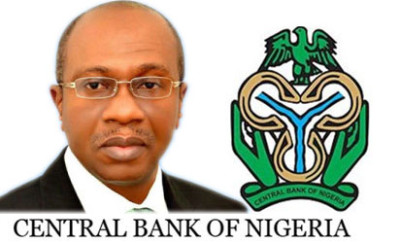
THE Central Bank of Nigeria (CBN) has blamed the country’s low revenue from non-oil export on stumpy loans to that sector.
Governor of the apex bank, Mr Godwin Emefiele made this known at the opening ceremony of a one-day conference organised by the Apex Bank in conjunction with the Nigeria Export Import Bank (NEXIM) on Non-Oil Export Simulation in Abuja yesterday.
Represented by the Director, Development Finance of the CBN, Dr Mudashiru Olaitan, Emefiele blamed the decline of non oil revenue on the low level of loans to exporters which invariably contributed to the decline in non oil export revenue receipts from $10.53billion in 2014 to $4.39billion in 2015.
“It has been observed that while credit to non oil export is declining and currently at an average of 0.6 percent of total domestic loans to the private sector in the past five years, the domestic credit to the economy has been on the rise, Emefiele stated.”
The CBN Governor further said that it had become more instructive for stakeholders to dialogue towards evolving responsive strategies that would expand resources for exports and its funding programmes on a complimentary basis.
He said “The aim of this one-day stakeholders conference is therefore to foster greater understanding of the issues constraining our non oil exports and its sustainability with a view to proffering practical solutions on short term and long term perspectives”
Speaking earlier, the Managing Director of Nexim Bank, Mr Robert Orya said the seminar was underscored by the recurring problem of the volatility in the international oil market which has challenged the Nigerian economy over the years.
Orya lamented that the revenue profile has remained tilted towards Oil and Gas sector contribution of over 70 percent and over 90 percent of government and export earnings respectively.
This is as a result of the recent rebasing of Nigeria’s economy that revealed that production base had become much more diversified with the Service sectors accounting for about 52 percent of the Gross Domestic Product in 2014.
Orya noted that the current episode of the global oil price collapse is expected to be quite protracted and has manifested in significant revenue decline in Nigeria at all tiers of government with attendant macroeconomic and external sector challenges.
He however said, “The good news is that the current development has provided yet another opportunity for us to redouble our efforts towards developing other key sectors and enhancing the country’s non oil export revenues.”
According to him, “It is in the light of the foregoing that the CBN/NEXIM have decided to convene this stakeholders’ conference to elicit views and inputs towards reviewing the existing strategies and increasing the flow of funds to the non-oil export sector, in addition to addressing other key challenges impacting the sector”
On his part, the Chief Executive Officer of the Nigerian Export Promotion Council (NEPC) Mr. Olusegun Awolowo said that agricultural export has continued to play a predominant role in the Nigerian economy, accounting for the bulk of foreign exchange earnings from non-oil exports ($1.465bn or 53.99 percent).
Awolowo who delivered a paper on ‘Improving Market Access for Non Oil Commodities’ at the event noted that the Services Sector contributed about 35 percent of Nigeria’s GDP after rebasing of the economy in 2013, the disruption in the implementation of the Export Expansion Grant (EEG) as a result of uncertainty in the utilization of the Negotiable Duty Credit Certificates (NDCC) led to decrease in non-oil receipts.
He stressed that the Nigeria’s exports are still dominated by crude oil while pointing out that the country’s non-oil exports is dominated by Agricultural products, representing about 50 percent of non-oil exports in 2014 while solid Mineral is yet to assume a prime place.
END

Be the first to comment